Imani Perry
More Beautiful
James Baldwin said, “American history is longer, larger, more various, more beautiful, and more terrible than anything anyone has ever said about it.” Imani Perry embodies that prism. For the past few years, Perry has been pondering the notions of slow work and resistant joy as she writes about what it means to raise her two black sons — as a thinker and writer at the intersection of law, race, culture, and literature. This live conversation was recorded at the Chautauqua Institution.
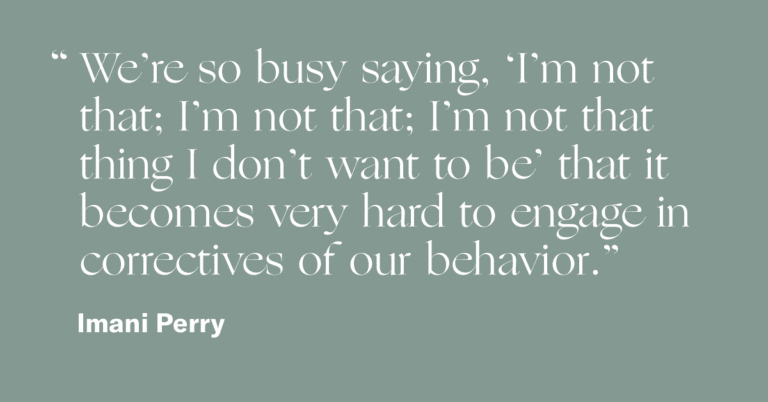
Guest
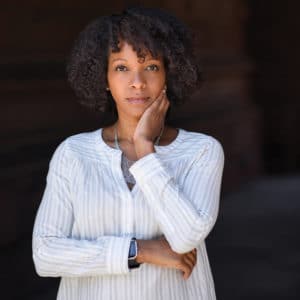
Imani Perry is the Hughes-Rogers Professor of African American Studies at Princeton University. Her books include More Beautiful and More Terrible, Prophets of the Hood, Looking for Lorraine, and, most recently, Breathe.
Transcript
Krista Tippett, host: Imani Perry writes this in her book called Breathe: “In the Catholic tradition, there is a form of grace, the sanctifying one, that is the stuff of your soul. It is not defined by moments of mercy or opportunity; it is not good things happening to you. Rather, it is the good thing that is in you, regardless of what happens. You carry this down through generations, same as the epigenetic trauma of a violent slave-master society. But the grace is the bigger part. It is what made the ancestors hold on so that we could become.”
[music: “Seven League Boots” by Zoë Keating]
For the past few years, Imani Perry has been pondering this as she writes about what it means to raise her two black sons — and as a thinker and writer at the intersection of law, race, culture, and literature.
I’m Krista Tippett, and this is On Being. I interviewed Imani Perry as part of an expansive exploration of the theme of grace at the 2019 summer season of the Chautauqua Institution, in the historic outdoor amphitheater.
[applause]
Ms. Tippett: Good morning. I’m so happy to bring Imani Perry back to Chautauqua. I brought her here once before, when we did a week of programs on the stage at the Hall of Philosophy. And it was a day of biblical rains.
Imani Perry: [laughs] That’s right — torrential.
Ms. Tippett: We actually had to stop the recording two or three times; we had to stop the conversation two or three times. I’m delighted to bring her back, and we will not be interrupted. [laughs]
Ms. Perry: Thank you so much for having me again. It was wonderful, despite the rain.
Ms. Tippett: You describe yourself as a “cradle Catholic,” born in Alabama.
Ms. Perry: Yes. Indeed. [laughs]
Ms. Tippett: How — oh, there you go. You see? [laughs]
Ms. Perry: It’s divine intervention.
Ms. Tippett: It is. There’s a jinx. [laughs] OK. A moment of silence while the alarm winds down.
But you also describe yourself as a “child of the fragments.”
Ms. Perry: Yes, and really, multiple traditions. In my own life, there’s this dance between a very traditional Black Southern coming-of-age as my foundation, and then, on the other hand, my family is Catholic, which is rather unusual for that part of the world. And I grew up in Massachusetts, and I spent summers in both Alabama and Chicago, and in all of those places, there’s these multiple encounters, both with a variety of types of people and, also, spiritual traditions.
Ms. Tippett: What strikes me, between the time that we spoke in 2014, here at Chautauqua …
Ms. Perry: Gosh.
Ms. Tippett: … and now …
Ms. Perry: A lot has happened.
Ms. Tippett: It’s not that many years, but it’s been a really tumultuous moment of great shift, culturally. And something that strikes me that I don’t think I saw in the same way when we spoke before — your mother and grandmother were Catholic; your mother, in fact, was a former nun for a little while. You great-grandmother was Baptist. Your birth father was Lutheran. Your father who raised you was Jewish and white.
[laughter]
Ms. Perry: A lot of traditions.
Ms. Tippett: And what I also see — what I see writ large now is, you straddle so many American divides, not just black and white, but South and North — there’s Alabama; there’s Chicago; there’s Princeton — there’s the religious and intellectual polarization; and there’s kind of a multi-class identity, which is really extraordinary in a moment like this. There are some words of James Baldwin at the beginning of your book, which you named after these words of his — More Beautiful and More Terrible. He said, “American history is longer, larger, more various, more beautiful, and more terrible than anything anyone has ever said about it.” And I kind of feel like you, in your person, embody that prism.
Ms. Perry: Thank you; I mean, I think that that is my experience. And the transition for me, personally, from feeling like I’m this kind of strange person entering all of these worlds, to actually thinking about it as a source of insight and offering me a capacity to connect with a variety of people, that’s part of the process of maturing. And so I’m constantly trying to think about how do we more fully recognize each other as human, in order to be more humane? And how do we shift what we talk about as political questions to ethical questions, which is really where they belong?
And some of that is through story; some of that, I think, has to be through encounter. And so whatever little job my callings do, I think part of it is to bring those stories through, to add to the conversation.
Ms. Tippett: Couple of things that that sparks in me, and I also think — and I want this to run through our conversation today — I have a long view of time, and I think that comes out of the kind of conversation I have. And I like to play this thought experiment: What will people, looking back 100 years from now, what will they actually see? And it may be that what we think is important that’s going on is not at all what will rise to the surface. What I also know is that when time becomes history, there will be an “us.” They will look back at us as an “us” …
Ms. Perry: As an “us,” yes.
Ms. Tippett: … although it’s a very fraught thing to use the word “we,” for any individual person now to use the word “we” and mean a lot of other groups. So that’s interesting. Also, that connection between “human” and “humane” — in French it’s the same word — but somehow, that move is where our salvation lies.
Ms. Perry: Absolutely. It’s funny, because one of the reviewers in the process for my book on gender said, “You keep using this word, ‘we,’” and saw it as a problem. But the “we” shifts. So the we is a collective we, but it’s also, sometimes, a smaller we. In this moment, for me, especially with the question of 100 years in the future, the thing that I think about on a daily basis is the Earth, and the Earth screaming. And I think there’s an imperative to think about “we” in the global sense, as much as we break off in a multiplicity of silos and factions.
Ms. Tippett: And that’s a complicated move for us to make …
Ms. Perry: It is.
Ms. Tippett: … that juggling all of that at the same time.
Ms. Tippett: So one of the ways you have been working through this is through this book you’ve written. We talked about all the many identities you have, and this is your identity as a mother …
Ms. Perry: Yes, the most important one.
Ms. Tippett: … a mother of two sons, a mother of two black sons. And so when you and I were at Chautauqua in 2014, they were 8 and 11.
Ms. Perry: Gosh. [laughs]
Ms. Tippett: We were halfway through the second term of a black president. What was very present in that moment was the shooting of Trayvon Martin. I remember you talking about how your sons just wept when George Zimmerman was acquitted. And across the years, I’ve actually thought of you and your sons, because we had that conversation in that moment.
Ms. Perry: Oh, thank you. Yes.
Ms. Tippett: And I feel like in this book, this is you, both reflecting on what that has been, and speaking to them and speaking to the rest of us. So you start it with a quote which you attribute to “everybody and their mother” [laughs] “It must be terrifying to raise a black boy in America.”
Ms. Perry: Yes. I’m a bit tired of that question.
Ms. Tippett: Are you?
Ms. Perry: Yeah.
Ms. Tippett: OK.
Ms. Perry: Because it often feels voyeuristic —
Ms. Tippett: Yeah, and I wanted to acknowledge that, and you say that in the book. You actually wrote, “The indelicate assertion hangs in mid-air,” people speculating “as if this is a matter of fact,” “hungry for [your] suffering, or crude with sympathy.” So I do actually want to acknowledge that right here.
Ms. Perry: Yeah, and it’s an echo of DuBois’s 1903 Souls of Black Folk, when he talks about hearing the question, “’How does it feel to be a problem?’ To which I seldom answer a word.” And there’s something to the fact that 100-plus years later the same question remains. And part of what I’m trying to work through is that yes, there is terror, but there is also incredible beauty. And there’s a way in which the repetition of the narrative of the terror almost evacuates the full humanity of their lives, and my life, and also the incredible beauty. And so the question, for me, is both how do we acknowledge the social reality of deep inequality, of mass incarceration, of death of innocent black youth, and also recognize that it’s important to assert and reassert the full humanity and beauty of their lives, and also to offer them a vision of their lives that is meaningful — and a kind of witness that I think actually speaks to the entirety of the human experience.
Ms. Tippett: So what I want to invite you to do, or ask you to do, is, as we talk about this for the next few minutes, if the question I ask isn’t a good question — no, I mean it. If it’s not a question you want to engage, I want you to tell me what question you do want to engage …
Ms. Perry: OK, I will.
Ms. Tippett: …because I also feel like part of what’s going on in this moment is, those of us who are reckoning, we still don’t know how to — what do we say — “clear the air?” We’re figuring this out as we go.
Ms. Perry: We’re all figuring it out.
Ms. Tippett: And I actually think part of what has to happen is this kind of — you saying to me, “I’m weary of that question.” And yet, it’s not that you don’t want to talk.
Ms. Perry: Right.
Ms. Tippett: It’s like we have to learn together and from each other.
Ms. Perry: How to engage.
Ms. Tippett: And I have to learn from you how to engage this particular aspect of what, as you say, is not just a piece of your story, it’s a piece of our story.
There is this question in the — this is you speaking to your sons: “How do you become, in a world bent on you not being and not becoming?” And so I want — as a mother, I read that, and I want to know, unfold how you see — what it means — very particularly, how that question unfolds in the life of your sons and of your life with them, as a mother.
Ms. Perry: Absolutely.
Ms. Tippett: What does that mean? Because your sons are also — sorry, I’m gonna let you speak, but you talk about — it’s true that if you begin your journey as a black or brown child in the United States, from the very beginning of your life, you’re less likely to receive decent medical care or quality education, teachers who have high expectations of you, and less likely to live in a safe community. And that’s not true of your sons …
Ms. Perry: That’s right.
Ms. Tippett: … and yet …
Ms. Perry: And yet.
Ms. Tippett: … This question is something you live with.
Ms. Perry: Absolutely. It was very important, for me, to acknowledge the class position of my sons and the rarity of their experiences, not just for black children but for children in the United States. They live in a home literally with thousands of books. They have remarkable resources. And I think it’s important to acknowledge that, because I don’t want to participate in the fiction that often, I think, follows, when those of us who are black people who have a large public voice, to overrepresent our particular experience as “the experience.”
And at the same time, they deal with race and racism every day of their lives. They see it. They know it. I can give examples from the time they were five years old, of encounters with racism: in progressive schools, on the street. And so the reality is, I have to arm them, not simply with a set of skills and intellectual tools that allow them to flourish in school, and ethics and values, but also a way to make sense of the hostility that they encounter every day from people, at times, whose responsibility is to treat them as community members. That’s the world they occupy, the people who are closest with them, sometimes people who they spend more hours with every day than they do with me. And that’s a complicated task.
And I mention it in part because I do want it to trigger, for readers, a kind of ethical reflection on their part. What is it — all of these things come up when we have these cross-racial encounters or cross-class encounters. And we tend not to be reflective of them, in part because, as James Baldwin talked about, Americans are addicted to innocence. We’re so busy saying, “I’m not that; I’m not that; I’m not that thing I don’t want to be” that it becomes very hard to engage in correctives of our behavior.
So I want them to be able to assess what their experience — to not internalize the venom that sometimes — to have antidotes at the ready, but also, to feel as though there are spaces where they can return and actually acknowledge the experience of suffering and pain; that that is part of the work of intimacy that they have with — part of the actual work of intimacy in our family.
Ms. Tippett: Can you give an example of maybe something that’s happened recently that illustrates this — how this turns up innocently? Or … [laughs]
Ms. Perry: Gosh, how many examples. So actually, it’s not that recent, but there was an incident — this is actually when my younger son was very small, at school, and a child said, “I don’t” — they were doing some crafts, and she was like, “I like you, you, and you, and I don’t like you two.” And my son, of course, being my son, said, “Is it because we’re black?” And she said yes. And my son said, “Well, that means you’re a racist.” And the other child was really hurt, who was one of the ones put out, and my child had this indignation. And the teachers dealt with it appropriately; there was discussions and etc., etc.
But what stuck with me is that the parents of the child who said this, who I had been seeing for years, never spoke to me, never would look me in the eye and speak to me in school every day, who identified themselves as liberal, who identified themselves as progressive on race — and not just wouldn’t speak to me, but wouldn’t speak to other black parents. So they had taught this child this lesson. How was she to make sense of it any other way? So who’d never said anything, I assume, negative about black people, but when you see, however “innocently,” a refusal to even have the barest interaction with black people, you’re teaching children a lesson — even a basic greeting.
And that’s not an indictment of those parents; it’s actually, I think — it demands a mirror of us. I can think of corollaries along the lines of class amongst black people, in terms of who is seen — for those of us who are bourgeois, who is seen as acceptable to interact with, who are there efforts to distance ourselves from. So those — what seem like rather modest moments, or moments that are resolved that are actually not at all resolved.
Ms. Tippett: Right, because, well, we resolve the moment, but not the underlying drama.
Ms. Perry: Yes.
[music: “The Woodmans” by So Percussion]
Ms. Tippett: I’m Krista Tippett, and this is On Being. Today with Imani Perry at the Chautauqua Institution.
Ms. Tippett: So what that leads into is something else I want to talk to you about, which is whiteness, which is a — I feel like, at least, and this doesn’t necessarily mean a huge amount of progress, but that there’s — that word is out there. And there is, I would say, a dawning realization that whiteness is a thing, that it’s a construct just like race is a construct; that white people also must acknowledge that they have race; that the race discussion is not about everybody else. But there’s something you wrote about in here that I found really useful, which was the analogy of foot-binding. So you have this fascination with foot-binding as a cultural practice in China. And you said, whiteness is a potent form of binding. So would you tease that out, that imagery?
Ms. Perry: I think that it is a constriction. It cuts off the blood supply. It disciplines, or it threatens to discipline, white people out of deep identification with other human beings, which I think is the natural state of things.
I’m always struck by how often people act as though racial differentiation is natural; that that’s a natural — I don’t think that’s natural, actually. I think the natural condition is for human beings to actually have the capacity to identify and resonate with one another. I think the creation of whiteness actually does something to close off.
Ms. Tippett: It creates the differentiation.
Ms. Perry: It creates the differentiation, and it creates the sense of potential terror in not holding the boundary. It’s not incidental that there were laws against black and white people playing checkers together in Alabama. That’s such an absurd thing. But it was implemented to discipline, particularly, working-class white people from identifying with people who were much closer to them than the elites who were making laws.
And so I do think about the prospect of the emancipation of white people from a white imagination to a human one that isn’t bound up in this identity that often doesn’t get articulated, but one is reminded of constantly. So whether it’s media, television, how we’re educated, the way that — even the genealogies — I’m often telling my kids things like, it’s sort of strange that Greece is figured as the beginning point for the history of the West for Americans, when there’s been such a tiny Greek-American population. Or how marginalized Greece is, actually, currently, in the West, how vulnerable Greece is. There’s all these mythologies that are taken at face value that are really about this idea of whiteness.
Ms. Tippett: It’s imaginative; it’s a leap of imagination.
Ms. Perry: And we could imagine differently. So I think that’s a piece of it.
I will say this, though, and it’s a little bit off-topic, but it relates to your question. So several years ago, when people started showing the videos of whatever, unarmed black people being killed by police officers or others, and there was this idea that, well, if white people know — they just don’t know. And if you show — if people know, then something will change. And I was skeptical of it then. I’m very sure, now, that actually the repetition — and you never know. The repetition of seeing a particular group of people suffering may have the capacity to make one identify with their suffering, but it also may deepen stigma. It has the prospect of actually saying, “Oh, yeah, those are the kind of people who just get killed.”
Ms. Tippett: I see.
Ms. Perry: And we know that to be true.
Ms. Tippett: Becomes another way to differentiate.
Ms. Perry: And to me, the question is not so much the visual. There’s lots of different ways to think about this, but I don’t think that the issue was whether or not it was seen, visually. I think the issue is the disbelief about the depth of inequality in this country and the depth of racialized violence in this country; and that disbelief is actually at the cornerstone of American history that has to be broken down. And videos, tragic as they are, are not going to do that.
Ms. Tippett: I think that’s so helpful and useful, to focus in on the disbelief as the thing to be working with. To come back to this foot-binding analogy, you were just, again, doing this thought experiment — you were talking about foot-binding, and then you said, “And I wonder what happened when, in a cultural upheaval, these selfsame women who’d been told all their lives that this was the way to be beautiful and respectable and noble, these selfsame women were told foot-binding was over. They could barely walk. Binding doesn’t let you get free without serious wounding.”
Ms. Perry: Yeah. I think we would do an ethical wrong if we didn’t acknowledge that there will be enormous growing pains. And there also — there are growing pains now that are — one of the things that research shows is that if you tell white constituents or potential voters about the coming ethnic plurality — the United States, in however many years, will no longer be a majority white nation; it’ll be a collection of various groups; everybody will be a minority — that that leads to increased conservatism amongst white voters.
That’s just a demographic shift, which is a very different question than a political or moral or ethical shift. But even that causes a great deal of discomfort. It’s a transformation that I’m not sure how that will play out in this country, but it’s — change is hard, whether deliberate or not.
Ms. Tippett: We don’t deal — just biologically, we’re learning, physiologically, it’s stressful, and it’s more stressful for some than for others.
Ms. Perry: Yeah, and I just think that it’s important to — and I try to do this with myself in this book — but also to acknowledge that we all experience the difficulties of change and transformation and tragedy; some get it much worse than others.
Ms. Tippett: I want to actually read a little bit from your book Breathe. “Mothers like me once had no recourse, no power to hold off the lash, to hold on indefinitely, to fight back when they crushed your heart and life. I think, back then, I would’ve been like Frederick Douglass’s mother: I would’ve bared one of my scars, like the one on my knee from a bit of flying charcoal at a cookout when I was six, and told you to remember me by it; in the crowd of endless labor, to know me by it. And if I didn’t have a landmark on my flesh, I would’ve made one for you, carved it into my right arm, a knifed X for your mother.
“So you know, this life we have is grace. In the Catholic tradition there is a form of grace, the sanctifying one, that is the stuff of your soul. It is not defined by moments of mercy or opportunity; it is not good things happening to you. Rather, it is the good thing that is in you, regardless of what happens. You carry this down through generations, same as the epigenetic trauma of a violent slave-master society. But the grace is the bigger part. It is what made the ancestors hold on so that we could become.”
[applause]
Ms. Perry: Thank you. So earlier this summer this year, I was in Florence, and I saw Michelangelo’s Pietà. And one of the questions I ask in Breathe is, How many pietàs? So we see this repetition of mothers who have had their sons taken away, and I am resistant to the repetition of “That could have been my son,” because it’s not, and we shouldn’t rob the moment with our self-interestedness of the tragedy. We’re supposed to surround the people who’ve been confronted with tragedy with love. But there is something that is carried through history and generations of the most devastating tragedies, and we live despite them, and we live with them. And I think the question is not — there’s a part of it that is, what does that tell us about how to be human, better; that we ought to be listening to history and the world?
One of the things with Toni Morrison’s passing that I have been thinking about and talking about is that what her work has done, for me and, I think, for many others, is to really have us sit in the ordinariness of tragedy, of devastation. But it’s also, there’s something universal, and to be present with both of those and to not — so every time I go through some heartbreak or something devastating, I go back to her work, and I read the entire body of the work, in part because there’s something — and I do think this is peculiarly American, where we’re always trying to find our way to the charmed life where no disaster ever happens.
Ms. Tippett: Well, I think it’s a human thing, but Americans have really taken it as their calling.
Ms. Perry: We’re experts at it. We can’t even talk about death. But we all are gonna be there. And, God willing, every meaningful relationship that we have in our lives will end. And I say “God willing,” because that means that we have loved and then lost; we’ve lived long enough to love and lose. Every relationship, even the most important, ends in death or another kind of fracture. All of this to say, these are really fundamentally human questions. So there’s these social questions, social and political questions about how we organize our society better, but I think we also have to tap into the universality of them to even begin to answer them. There’s a reason — my favorite metaphor is the one of guitar strings. So if you are sitting next to someone and you both have guitars, and if you’re close enough and you strum and the wind makes the strings on the other guitar reverberate. That to me, that’s a metaphor of the capacity of human beings to connect with one another. And that’s what I think we have to be looking for, not in a Pollyanna-ish sense, because that’s hard. But I don’t know what else we do.
Ms. Tippett: And that is, for each and every one of us, interior work as much as it is work that we do in concert and in conversation and in shared life.
Ms. Perry: That’s right. And it’s why — I love all forms of art, but there’s something very special about reading, because you are entering into a world with other human beings, but it’s very interior. There’s something very intimate about it, and so there’s this — it’s why I’m a writer. There’s a possibility to get to that.
[music: “Paper Feather” by Blue Dot Sessions]
Ms. Tippett: After a short break, more with Imani Perry. This show is part of On Being’s Civil Conversations Project — tools for speaking together differently in order to live together differently. Learn more at onbeing.org.
I’m Krista Tippett, and this is On Being. Today, I’m with Imani Perry. She’s a thinker and writer about culture, literature, law, and race. She’s brought all of this together in her meditative book, Breathe, about raising her black sons in this world. I interviewed her in the historic outdoor amphitheater of the Chautauqua Institution. Chautauqua’s Chief of Staff Shannon Rozner moderated a few questions from the audience.
Shannon Rozner: It’s as if we planned this; our first question from Twitter is about that interior work, and one of our questioners asks, “Do you have any advice on how to advocate for justice without resorting to attacks? It feels like the more I see in our world, the easier it is to let hate into my heart and unintentionally embody what I seek to help stop.”
Ms. Perry: So that’s — I think that’s a really important question. “Attack” is such a complicated word nowadays, because [laughs] so often, what is a kind of frank confrontation is experienced as attack, especially on social media, because people feel so invested in this presentation of themselves and the public, so when it’s confronted, people get really defensive. It’s one of the perils of the social media age. So I do think that we have a responsibility to be able to hear, to listen, to sit, when people confront us. And on the other hand — well, actually, not on the other hand — and likewise, there’s a lot of good reason to be furious right now. And there is such a thing as righteous rage, righteous anger. And I don’t want to dismiss that.
The question is just, how do you experience that and also channel it into something productive? — which is slow work. And part of the problem is the way that we’ve been taught the histories of social movements, so everything is this dramatic event, this dramatic march, this dramatic bra-burning, whatever. And in point of fact, it’s always slow work. It’s deliberate work. It’s work that —
Ms. Tippett: In point of fact, the marches came after 15 and 150 years.
Ms. Perry: Right — of work, day in, day out.
Ms. Tippett: We don’t tell that story of the long arc.
Ms. Perry: We don’t. And that’s one of our — I’m always thinking, what is the function of history? And part of the function of history is for us to move forward. So I think that speaks to thinking about how we tell history in order to put it to work today.
Ms. Rozner: To take it back down to a more personal level, going back to the child at the arts and crafts table, if their parents were able to look you in the eye, can you imagine, for us, the conversation you would’ve liked to have?
Ms. Perry: Oh, wow. Honestly, I haven’t thought about the substance of the conversation; I’ve thought about the fact of conversation, the idea that acknowledging me and my children as members of their community. So “Hello” would be meaningful.
[laughter]
[applause]
And this is not — and I should just say, it’s a repeated instance, so if anybody — anybody here, if you talk to the black people in your life, you will hear stories upon stories of being misnamed, misrecognized. I worked at an institution for seven years, and I promise you, every time — this is not Princeton; it’s my previous institution — every time I stepped off campus, the majority of my colleagues would not recognize me on the street. I would say “hello” to people, and they wouldn’t say “hello” back. And again, liberal, progressive people. So there’s something about — to understand that there are people who look at me and see “black” — not Imani — “black.” And it’s as crude as that.
That’s serious work that has to be done. And it requires — I’ll tell one more anecdote; I’m sorry, but it was kind of funny to me. So I had a colleague at one point who I saw at the train station; we lived around the corner from each other. And he said to me, “Hello, Kim.” He’s behind me. My name is Imani. He said, “Hello, Kim.” And then he said it again, and he said it a third time, and I said, “I’m not Kim.” And Kim is a wonderful person, but she’s literally six inches shorter than me, shaved head, totally different complexion, different build. And then he was so embarrassed, he didn’t speak to me anymore, which was not the appropriate response. And I understood his embarrassment, but the question is, how do you work — and I think that the same thing with these parents — I am sure these parents were embarrassed. But working through the embarrassment, as opposed to actually further isolating me and my children, would be a much more appropriate response.
Ms. Rozner: You talked about the history inside of us, and I think the questioner has a sense of the weightiness of that. We here have been wrestling with, how do we take what we’re learning and act upon it? How do you do that in your life and not get paralyzed by all that, clearly, you know? How does that not weigh you down?
Ms. Perry: To be really honest, it’s a combination of my grandmother, my late grandmother, and my children. So every once in a while, people will say to me, “How can you be hopeful?” And I think, as a mother, I have an ethical responsibility to be hopeful. The task, is to invest in our children as a way of investing in the world and investing in humanity. My grandmother — and I say this in the book, too — it’s a cliché for those of us — black people from the South with working-class roots, we’re always like, “My grandmother was the smartest person I ever knew,” but I really do mean it.
[laughter]
This is a woman who did not complete high school, had 12 children, cleaned homes, sent all 12 children to college …
[applause]
Yeah, she was extraordinary — and had a brilliant husband, but who had struggles of his own — he passed away before I was born. And she got up every day — she lived a prayerful life — I went through a period of my life where I tried to pray unceasingly. I did the Ignatian exercises in the Catholic tradition, and I was — but a lot of it was modeled after her. And so she would say, “Thank God for his many blessings” every day, even in the most difficult of moments. She read every day. She saw a sense of meaning in every meal and every interaction. And I do think there’s something about a life in which you understand the meaning of these small moments of grace that actually wards against the feeling of being overwhelmed — it’s gonna come. But then she also — and this is one more thing — when she had those moments, she would rely on her friends. So she would call Mrs. Stuart or Mrs. McCall, and they would talk, and they would talk her through when she was feeling overwhelmed. And so she modeled intimacy; she modeled friendship; she modeled the ideal, for me, of maternal love. And so I sort of feel like I’m living through her, but I’m also living what I think — there’s a big part of me that is trying to be what she would have been, had the circumstances of her life been different. I’m trying. I’m not her; Neida Garner Perry was extraordinary. But I’m trying.
MC: Thank you.
[applause]
Ms. Perry: Thank you.
Ms. Tippett: Sometimes people ask me what are recurring themes or ideas that pop up everywhere. And I say, it doesn’t really work that way, but — so what happens is that suddenly, something surfaces, and then it’s in every conversation for a little while. And right now what that is, which you just so echoed, is an insistence on hope and an insistence on joy and taking delight wherever and whenever, and that those are muscles for inhabiting these difficult times, and what your grandmother knew — that wisdom that it’s not the American thing of pulling up your own joy-bootstraps. It’s about, also, understanding that we can’t carry those things alone. Any of us can’t carry them on any given day.
Ms. Perry: Absolutely. And it’s hard to talk about without — I think, for some people, it’s sounding like an evasion. But it’s really the thing we’re fighting for. It’s the human experience that we’re fighting for the proliferation of so that life is not defined primarily, for so many people, by suffering in violence and hardship, but actually that thing that all of us possess, which is this incredible capacity for joy and beauty; that is not ego-driven.
So we, in this — we are not of the Instagram generation in this room, by and large, but the Instagram generation is with us, and there’s a lot of display of joy. Or there’s a lot of quick pleasure, a rush of excitement. Joy is something much deeper than that. It’s not surface. It’s something that reaches deep inside that, at the most beautiful moments, is a moment of connection with, if not another person, with the Earth. So I watch my cousin, who — we have a very similar kind of disposition, my cousin Jillian, who is gardening with her children all the time. And she shares the sunflowers and the tomatoes and the beans and the basil, and that that is both life-giving, literally speaking, but also, spiritually speaking. So yes, I think that that kind of resistant joy is essential. It’s essential for us.
Ms. Tippett: And — yeah. You can applaud.
[applause]
You wrote, as you’re writing to your sons in Breathe, “There is still a future, as harrowing as it might be, I admit. I try to give you everything in the face of this, every bit of sweetness, to indulge and to spoil, to delight. There is enough of the other stuff for everyone’s lifetimes, a million times over.”
Ms. Perry: Yeah, because there’s this sensibility that’s like, “We have to arm kids and prepare them for the” — and discipline — and I just — life is hard enough. I want them to be moral and ethical human beings, so there’s constant — I think we all have a responsibility with young people, and not just children — but we have the responsibility to experience it from elders, to listen, and also to teach — but also to lavish with love. I think that that’s a big part of care today. I’m not taking any of that away from them. They are emotionally spoiled people, my kids.
[laughter]
Ms. Tippett: I would like to close with you reading from your book, this is near the beginning.
Ms. Perry: So I start with — this part begins with a quotation from my mother. “Mema, your grandmother, said it this way, ‘Mothering black boys in America — that is a special calling.’ How do I meet it? What is it like? How do I meet this calling? Is it like cultivating diamonds — pressure that is so tight that it turns you, black, into something white and shiny and deemed precious and valuable? That’s no good. Do I fuel it like coal, something that is to be burned up and used for the warmth of others or the consolation prize on Christmas? That’s no good either. Do I cover my home in the blood of a proverbial sacrificial goat, praying that we are passed over, that the bloodthirsty fear lands at someone else’s door? I am tempted, but I know that prayers don’t prevent tragedy; they hold you up as you pass through it, sometimes. Is it like stalking through a labyrinth, breathless yet deliberate, avoiding the snow-white minotaur? Maybe I am Theseus. Was it ever so apparent that we need to have this reckoning? Maybe I am Theseus, a living vocation, but also simply living with beckoning. And that is what it feels like. Its tenor and tone shift with the shadows of each day, but it is always there. Sometimes it screeches, sometimes it trills and warbles. Sometimes, it is a perfect, sweet pitch.”
Ms. Tippett: Thank you, Imani Perry.
Ms. Perry: Thank you so much.
[applause]
[music: “Abusey Junction” by KOKOROKO]
Ms. Tippett: Imani Perry is the Hughes-Rogers Professor of African American Studies at Princeton University. Her books include More Beautiful and More Terrible, Prophets of the Hood, Looking for Lorraine, and most recently, Breathe.
Special thanks this week to Michael Hill, Matt Ewalt, Emily Carpenter, Rachel Borzilleri, and the Chautauqua Institution.
Staff: The On Being Project is Chris Heagle, Lily Percy, Maia Tarrell, Marie Sambilay, Erinn Farrell, Laurén Dørdal, Tony Liu, Erin Colasacco, Kristin Lin, Profit Idowu, Eddie Gonzalez, Lilian Vo, Lucas Johnson, Damon Lee, Suzette Burley, Katie Gordon, Zack Rose, Serri Graslie, Nicole Finn, and Colleen Scheck.
Ms. Tippett: The On Being Project is located on Dakota Land. Our lovely theme music is provided and composed by Zoë Keating. And the last voice that you hear singing at the end of our show is Cameron Kinghorn.
On Being is an independent production of The On Being Project. It is distributed to public radio stations by PRX. I created this show at American Public Media.
Our funding partners include:
The Fetzer Institute, helping to build the spiritual foundation for a loving world. Find them at fetzer.org.
Kalliopeia Foundation, working to create a future where universal spiritual values form the foundation of how we care for our common home.
Humanity United, advancing human dignity at home and around the world. Find out more at humanityunited.org, part of the Omidyar Group.
The George Family Foundation, in support of the Civil Conversations Project.
The Osprey Foundation — a catalyst for empowered, healthy, and fulfilled lives.
And the Lilly Endowment, an Indianapolis-based, private family foundation dedicated to its founders’ interests in religion, community development, and education.
Books & Music
Recommended Reading
The On Being Project is an affiliate partner of Bookshop.org and Amazon.com. Any earnings we receive through these affiliate partnerships go into directly supporting The On Being Project.






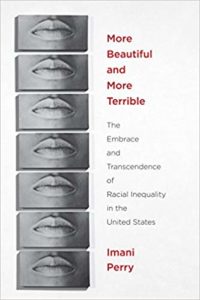
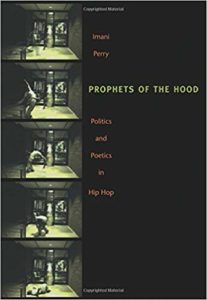
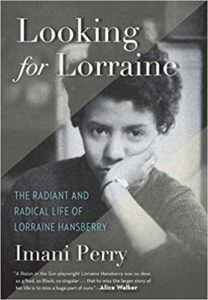
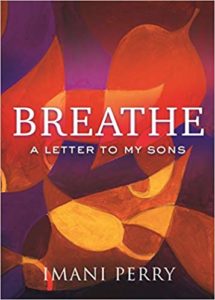


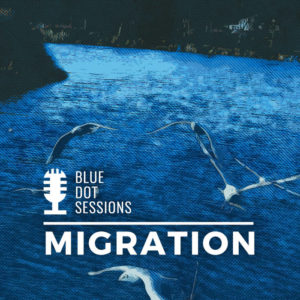


Reflections